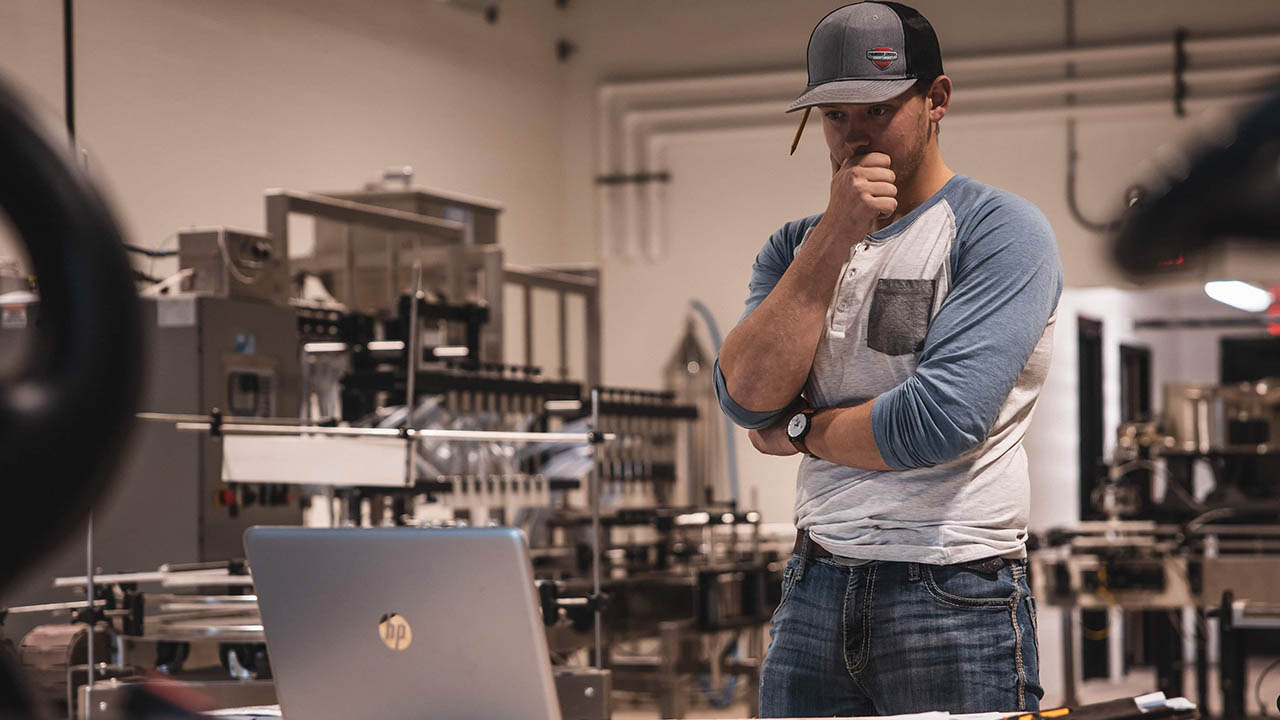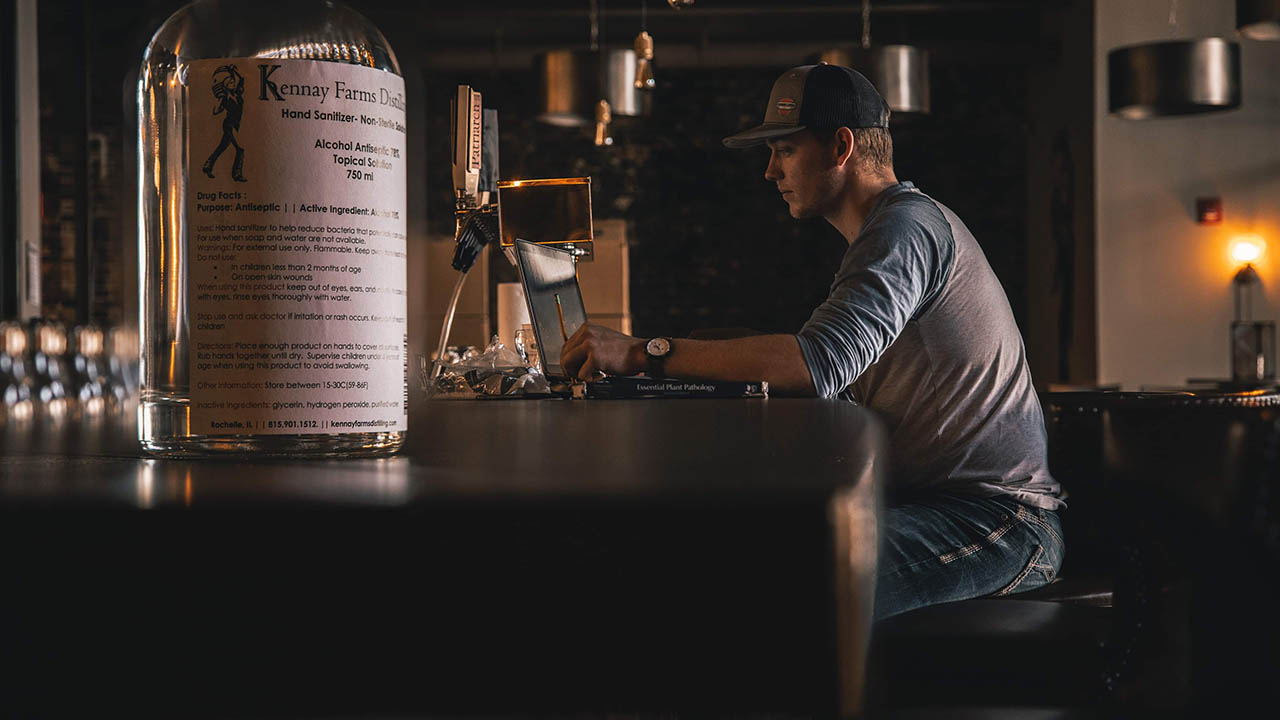

In early March, University of Wisconsin-Platteville soil and crop science major Adam Mairs had been looking forward to spring break and working as the farm manager at Kennay Farms in Rochelle, Illinois. But when the COVID-19 pandemic forced students off campus and into alternative learning methods, Mairs had to shift his plans, fast.
Not only does his employer have over 5,000 acres of cropland, they also opened a distillery about eight months ago. Seeing a need in their community, the staff converted the distillery to producing hand sanitizer. Mairs traveled throughout northern Illinois and southern Wisconsin gathering materials for production. Within a few days, they had sanitizer in everything from small bottles to 250-gallon jugs, and were ready to ship all over the country to hospitals, nursing homes and businesses.
“It is an awesome feeling being able to be a part of this operation and giving back to the communities across the nation by helping people stay safe and healthy during this time,” Mairs said. “It has been great to see a small, family business use their resources to support our community.”
While working hard to help others and run the farm, Mairs is also balancing a full course schedule online. Like his fellow students, he has had to adapt to this new learning style while also finding the time and reliable internet connection to complete his studies. Between loading trucks, Mairs sets up a desk on pallets of hand sanitizer to work on assignments, as well as spends late nights at the kitchen table. Thankfully, he’s found that most of his instructors are willing work with him and his schedule.
“Professors Muthu Venkateshwaran, Chris Baxter and Andrew Cartmill have all been responsive and willing to work with me and my unpredictable schedule as we transferred to online learning,” Mairs said. “My college experience as a whole has helped me be able to prepare and organize a schedule. In the sanitizer production and distribution process, there are many tasks presented, and priorities constantly change based on demand and priority. This is much like managing my fulltime course load while being involved with fraternity, campus, club, and intermural activities.”
Though much is uncertain, Mairs is doing his best to keep moving forward. Whether this is by staying in contact with his professors and classmates or producing sanitizer and crops for the communities he serves, Mairs is determined to stay positive.
“As the COVID-19 curve hopefully starts to flatten and the need for sanitizer begins to decline, there will be no slow down to ‘school on the job’ for me,” he said. “We hope to begin field work as soon as next week. Hopefully, my professors and classmates will enjoy the view from the cab of the tractor!”